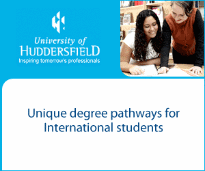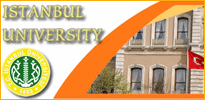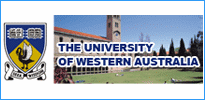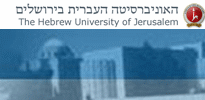Thailand: Thailand Education Profile
2015/02/15
Schooling and Education in Thailand
The basics of the education system in Thailand. Information includes all the stages from creche to pre-primary, primary and secondary education and international schooling...
The three government agencies responsible for the development of the educational system in Thailand are the National Education Commission, the Ministry of Education and the Ministry of University Affairs.
Types of School
Find out about the different types of Thai school, with details on international and private schools as well as government and higher education institutes...
Private and international schools
The facilities and quality of teaching in international schools are usually of a very high standard and the class sizes are small. There are over 70 international schools in Bangkok but they can also be found in Phuket, Chiang Mai, Hua Hin and on the Eastern Seaboard. From pre-school to higher education, there are internationals schools for every age.
The curriculum may vary between schools although most follow either the American or British curriculum. There are also schools that offer the International Baccalaureate or use national systems from Germany, Switzerland, Japan or India. International school students study internationally recognised courses such as AP, GCE “A” Level, IGCSE and the IB, which allow them to attend higher education institutes in countries outside Thailand.
All schools have to be externally accredited by law to ensure they follow set procedures and meet standards. NEASC, ECIS, WASC and CIS are all accepted accrediting organisations in Thailand. Typically, teachers teach in their native language.
Thai studies are a compulsory subject in international schools as in government schools. Most international schools offer wide ranging extra curricula activities including sports, arts, dance and community service.
Each school will follow its own admissions procedure which can include placement tests and inspection of prior academic records. Typically there is a fee for the admissions process. Normally, schools will require students to have a Non-immigrant ED visa in order to enrol. The parent must make direct contact with the school before attempting to obtain a Non-immigrant ED visa and if possible, prior to coming to Thailand. If the family is on a tourist visa, they will be required to leave the country in order to obtain the necessary visa.
Public/government schools
Education is compulsory for all Thai children from ages six to fifteen. It is not compulsory for preschool children to attend school, however, there are facilities for children aged three to five to attend nursery and preschool.
Government or public schools are free for Thai nationals. Children that have at least one Thai parent are considered Thai nationals if their birth was registered in Thailand by the Thai parent. As a Thai national, they are able to register in a Thai public school and receive all of the educational benefits allocated to a Thai national. The only documents required when registering are a birth certificate and House Registration Document (Tabien Baan).
Parents are required to pay a nominal fee for books and necessities. They are also required to buy a school uniform.
The following are the five areas in the government school curriculum:
- Basic skills in Thai language and mathematics
- Life experiences including social studies, natural science, health education, citizenship, conservation
- Character development including moral education, physical education, music and performing arts, art education
- Special experience (for grades five to six) involving English language or special vocational skills relevant to the needs of the community
- Thai studies (except in preschools)
Although there have been recent improvements in the teaching of the English language in Thai schools, many acknowledge that there is still much to be done to improve this.
Many government schools run an English-language programme that may be available to foreign students, but there are fees for this. The programme varies from extra English language classes to a completely separate school within a school where 50 percent or more of the classes are carried out in English with native English speakers. These programmes are considerably cheaper than an international school, but class sizes will be bigger and the method of teaching may be more learning by rote.
Higher education institutions
The different types of higher education institutes are:
- University
- Technical Institute
- College
- Vocational College
- Teacher College
Exchange study programme or university enrolment for foreign students
Parents wishing to enrol their children in an international exchange study programme or university in Thailand should contact:
-
Division of International Cooperation
Ministry of University Affairs
At: 328 Si Ayutthaya Road, Ratchathewi, Bangkok, 10400 Thailand
Tel: 02 245 8268
Fax: 02 246 4030
email
The Thai Education System
Understand the different levels and the grading system in Thai schools...
Since 2001 Thailand's educational system is divided into three levels:
Level 1 is optional, but Thai children are required to complete levels P1 to M3.
At the end of each year, students must take a test in order to move on to the next level. If the student cannot pass the test, they may have to repeat the last completed year or may be given an option of attending a summer school programme at the end of which the student will be retested. Students cannot continue to the next level until they pass the test. However, it is not common for students to be held back as, typically, the student can take the test again with the assistance of a teacher. This can be repeated until the student passes the required exam.
After completing the final obligatory year, M3, students who wish to continue their education must take the Ordinary National Educational Test (O-NET). At the end of M6 they take the Advanced National Educational Test (A-NET) in order to graduate. Graduating from M6 is the equivalent to graduating after taking A levels, the International Baccalaureate or the Standardised Achievement Test (SAT) in the US.
In order to attend a university after graduating from M6, students must pass the Central University Admission System (CUAS). This system is based on the scores of the O-NET and the A-NET as well as the Grade Point Average from M4.
The Grading System
Thailand uses a number grading system in primary and secondary schools.
Many English programmes and some individual teachers still use the A, B, C, D and F gading system with F being the failing grade.
Grading at the university level is based on a credit points system. Each subject is graded individually and the points are tabulated.
- The Ministry of Education is responsible for the provision of pre-school education, primary education, secondary education, teacher education, vocational and technical education and curriculum development. The Ministry of Education plays the most important part in children's education in Thailand
- The National Education Commission is responsible for educational policies, planning and research
-
The Ministry of University Affairs manages the state universities (in Thai)
-
Level 1: first three years of school
- KG1 to KG3 – 3 years to 5 years old
-
Level 2: Primary or elementary school (Prathomsuksa or Prathom)
- P1 to P6 – 6 years to 11 years old
-
Level 3: Secondary school (Mattayomsuksa or Mattayom)
- M1 to M6 – 12 years to 18 years old
- Highest: 4
- Lowest: 1
-
Level 1: first three years of school
Enrolment and Finding a School
Understand how to find a school in Thailand and what the enrolment procedure involves...
The first decision will be whether to send the child to a government school (if allowed) or a private, international school. Places in government schools are not allocated on a catchment area basis.
Applications for all schools need to be made at the school itself.
Admission requirements for foreign students
If a student has one Thai parent and their birth was registered in Thailand, that student is classified as a Thai national and is entitled to all the benefits of a Thai national.
Some or all of the following documents are usually required for foreign students enrolling in international or government schools. Check with the school for individual requirements.
- Passport valid for six months beyond intended length of stay
- Non-immigrant ED visa
- All documentation from previous school (if applicable)
- Birth Certificate
- Health Certificate
- Immunisation Records
The following documents are required for foreign students enrolling in a higher education school:
- High School Certificate or equivalent
- Academic records from previous schools
- Non-immigrant ED visa
An admission exam may also be required before a student is accepted into a programme of study.
The School Year and Holidays
What to expect from the school day and the school year in Thailand...
Government school times do vary but the school day usually starts at 08:30 when the National Anthem is sung. It ends at around 15:30. International schools may have differing start and finish times depending on the school.
Private international schools each have different dates for the school vacations. However, they are more likely to follow the Western timetable with a five-week holiday in July and August and two weeks for both Christmas and Easter. Contact the school for exact dates.
All Thai state schools follow the same school year but there will be slight variations between individual schools and provinces. Contact the school for exact information.
There are two main holidays in the state-school year:
- October: One month starting from around 1 October
- March and April: Two months starting approximately at the beginning of March until the end of April
Thai schools close for all national holidays. In general, international schools close for Thai religious holidays, check with the school for exact information.
For further information contact the Ministry of Education:
-
Ministry of Education
Tel: 02 281 3441
Home Schooling
Home schooling in Thailand is legal. Parents must submit an application to home school to the Ministry of Education. Students are required to take national exams and are assessed annually.
Further Information
Special Needs Education in Thailand
Information about the provisions for children with special needs with details relevant to the children of foreigners in Thailand...
State-funded special needs education is provided almost exclusively for Thai children only. However, there are international schools providing special needs education for foreigners in Thailand, and some schools are run by non-profit organisations.
Legislation Concerning the Provision for Special Needs Education
Until 1975 children with disabilities tended not to be provided for within the state system of schooling. However, the Individuals with Disabilities Education Act 1975 granted all children with disabilities a free, appropriate public education. These children were provided for in special schools separated from mainstream schools. However, Thailand is moving towards integration of children with special needs into mainstream schools. The 1992 Disability Act has further highlighted the need to continue to expand the provision for people with disabilities.
The 1999 National Education Act has attempted to give more attention to special needs education. Various ministerial departments are responsible for the provision of particular areas of special needs education. The Division of Special Education is within the Ministry of Education, while the Department of General Education focuses on the deaf, the blind, and integrated education. The Department of Non-formal education emphasises the needs of people living in remote areas.
Special Schools
There are a number of special schools that provide help for parents of children with special needs. Many are government-funded and provide education for children with Thai citizenship. Others are non-profit organisations and are generally for children that come from disadvantaged backgrounds and are of Thai nationality.
Special Needs Education for Non-Thais
For non-Thais there are a number of international schools with places for children with special needs.
The school also provides assistance in seeking professional help for kids with a wide range of special needs and can also assist families with children attending other schools. Places are available for children aged two onwards.
In Phuket, the Phuket Punyanukul School provides education and vocational training for children with special needs.
For information on international schools in Thailand see:
The organisations below can also provide help and provide information for parents of children with special needs in Thailand.
- International Schools Association of Thailand
-
The Good Schools Guide International lists, selects and independently reviews top international schools in Thailand (and worldwide).
-
Acorn to Oaks Centre is an English Speaking Centre for the evaluation of childhood development, providing support and learning with trained teachers, occupational therapists, speech and language pathologists and educational psychologists
At: Sukhumvit 71 Road, Bangkok
Tel: 02 711 7157-8
- Bangkok Mothers and Babies International (BAMBI) offers support and advice for parents with special needs, on their arrival in Bangkok
-
The Village Education Centre supports special education needs with special education teachers, after-school learning support, psycho-educational evaluations, occupational therapy and counselling for parents and children with special needs
At: 14 Sukhumvit Soi 42, Prakanong, Klong Tuey, Bangkok
Tel: +66 (0)2 391 4453-5
-
The Reed Institute is a commercial organisation in Bangkok that runs programmes for children with dyslexia, ADHD/ADD, behavioural and social skills problems as well as many other special needs
At: Sukhumvit Soi 38, Bangkok
Tel: 02 391 0107 -
The Fr. Ray Foundation is a non-profit making group that runs schools specifically for children with special needs, including a school for the deaf and a school for the blind
-
Acorn to Oaks Centre is a commercial English Speaking Centre for the evaluation of childhood development, providing support and learning with trained teachers, occupational therapists, speech and language pathologists and educational psychologists
At: Sukhumvit 71 Road, Bangkok
Tel: 02 711 7157-8 -
The Rainbow Room
A special needs awareness centre and support group for parents who have children with behavioural and developmental challenges including Down syndrome, dyslexia, autism spectrum disorder and other special needs. At: 30 Soi Saengchai Sukhumvit 38, Bangkok.
Tel: 086 770 0845
-
LEAP (Learning Education Advocacy Program): Parent-run group that serves as a point of contact for parents in need of support, referrals and information concerning their children’s special needs including learning disabilities, developmental delays, sensory integration and autism.
-
Little Sprouts Children's Centre
Private organisation for children with special needs and their families, in both Thai and English. Individual/group therapy, speech therapy, OT/SI, IEP development and management, assessment, and consultation.
At: 109/1 Soi Thonglor 5, Sukhumvit 55
Tel: 02 712 5204-5 / 086 0033 882
Fax: 02 712 6835 -
British Early Years Centre
Provides specialist classes of English and Maths for children with special needs.
Tel: 02 616 9342 / 082 794 3710
-
Acorn to Oaks Centre is an English Speaking Centre for the evaluation of childhood development, providing support and learning with trained teachers, occupational therapists, speech and language pathologists and educational psychologists
- Thailand News
-
- AFGHANISTAN: UNWTO: International tourism – strongest half-year results since 2010
- THAILAND: Thailand's GDP Growth Accelerates In Q2
- THAILAND: Thai Economy Expands Most Since 2013
- THAILAND: Thailand promotes organic agriculture with new incentives
- THAILAND: Tourism Authority of Thailand (TAT) is arranging a one-day tourism seminar
- THAILAND: Thailand works to liberalise insurance sector
- Trending Articles
-
- CHINA: China to loan Guinea $20 billion to secure aluminum ore
- BOTSWANA: Africa: U.S. State Department To Get Experienced Diplomat in Key Africa Post
- ISRAEL: Netanyahu to pioneer new diplomatic grounds in Latin America
- BAHRAIN: Aluminium Bahrain’s Line 6 Expansion Achieves 25 Percent Completion
- AUSTRALIA: Queensland Bauxite Gains State Approval of Mineral Development Work Program
- CHINA: China to Loan Guinea US$20 Billion for Access to Bauxite Reserves



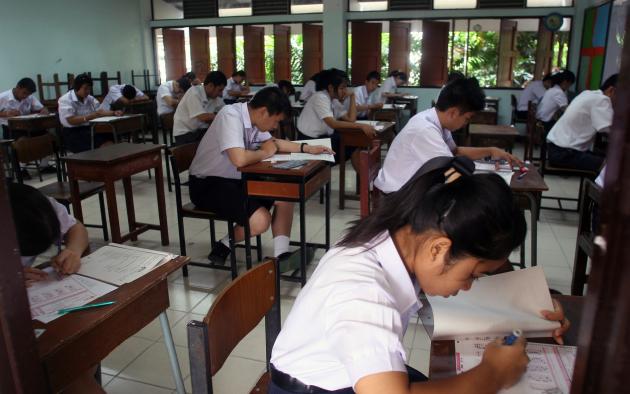


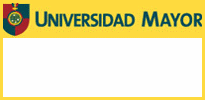
.gif?1356023993)
